#poem is Água Viva by Clarice Lispector
Text
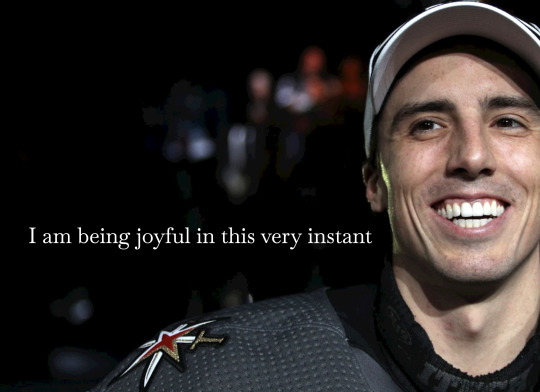

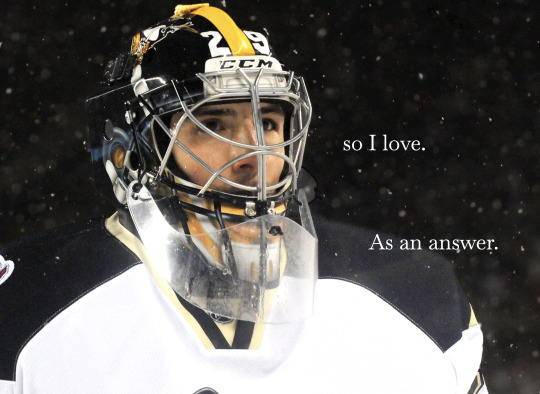
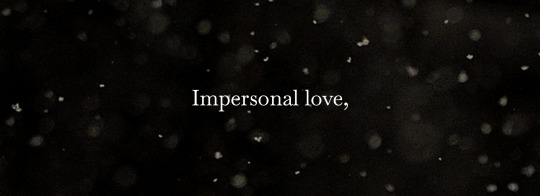



feel like pure shit just want getty images back x
#here he is though#my most special most beautiful boy#marc andre fleury#hockey poetry posts#home from holidays in a few days and ive missed u friends in my phone also I have Ideas and Plans and Things#poem is Água Viva by Clarice Lispector
197 notes
·
View notes
Text



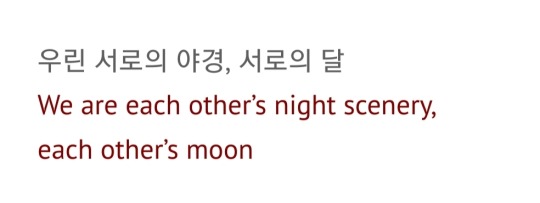
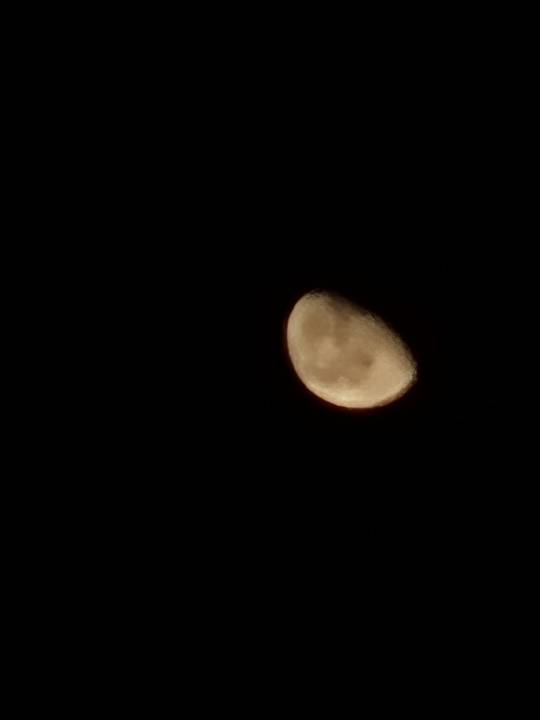



e.e. cummings, from “Ballade” (in Uncollected Poems), Complete Poems: 1904-1962 // From Supermoon 2016, one of 21 photos. Crowds look on as the supermoon rises behind the Fremantle War Memorial at Monument Hill on November 14, 2016, in Fremantle, Australia. (Paul Kane) // Mizuta Masahide, 17th Century Japanese Poet & Samurai // moonchild by rm (translation credits by doolset lyrics) // picture by my dear @taeoreomcflurry // Alexander Calder, Moon and Sun, on a blue background, circa 1970 // Clarice Lispector, from "Água Viva" (tr. by Stefan Tobler) // Mahmoud Darwish.
121 notes
·
View notes
Photo
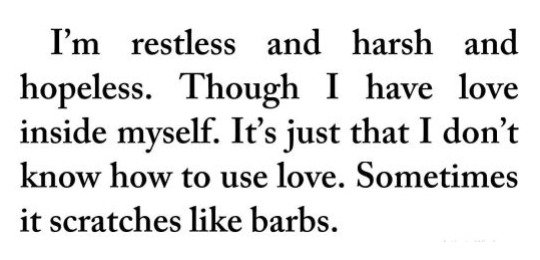
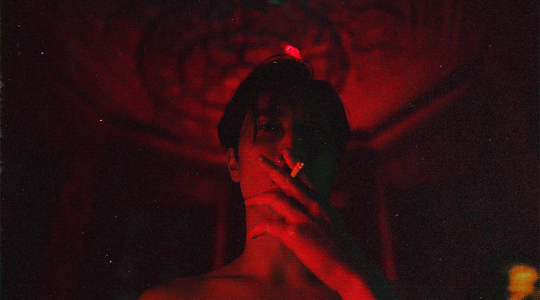

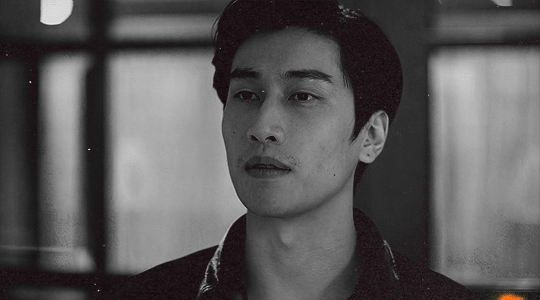
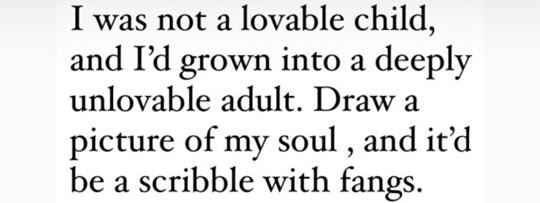
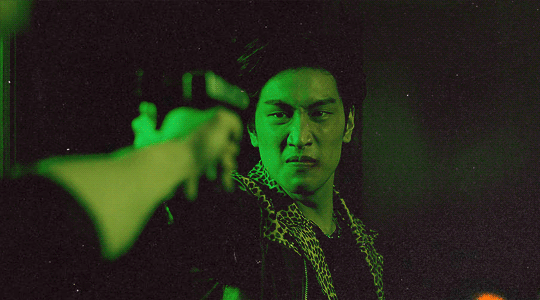

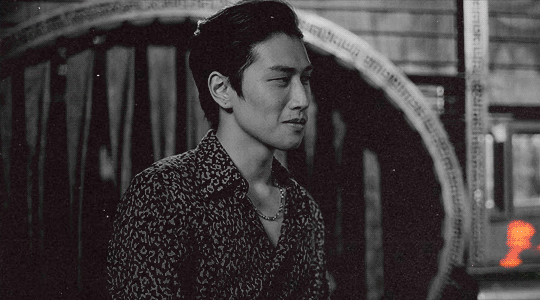

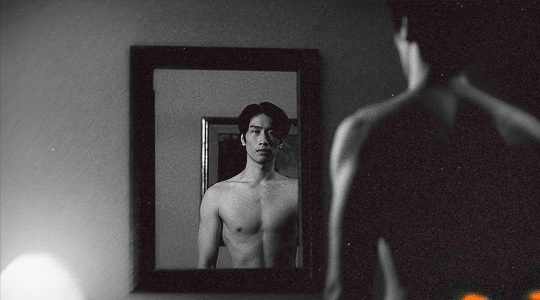
vegas + i don’t know how to use love
clarice lispector, água viva // charles bukowski, you get so alone at times that it just makes sense // gillian flynn, dark places // laura eden, the lioness awakens: poems // eve kosofsky sedgwick; fat art, thin art
#ah yes the blorbofication and the meowmeowfication of vegas#lol no but seriously he is such an interesting character#boy has LAYERS#vegas#vegas theerapanyakul#kinnporsche#kinnporsche the series#kpedit#kinnporschesource#userlinnea#porschessmile#tosnimeat#web weaving#kinnporscheedit#bible sumettikul#bible wichapas
344 notes
·
View notes
Text
List of books I read this year
The Summer Children by Dot Hutchison
My Sister, the Serial Killer by Oyinkan Braithwaite
The Reader by Bernhard Schlink
Kink: Stories by R.O. Kwon
Ada, or Ardor: A Family Chronicle by Vladimir Nabokov
Franny and Zooey by J.D. Salinger
The Vanishing Season by Dot Hutchison
If Beale Street Could Talk by James Baldwin
Nana by Émile Zola
Poesía completa by Alejandra Pizarnik
Hija de la fortuna by Isabel Allende
The Cure at Troy: A Version of Sophocles' Philoctetes by Seamus Heaney
The Complete Fairy Tales by Oscar Wilde
The Butcher Boy by Patrick McCabe
The Dalkey Archive by Flann O'Brien
The Likeness by Tana French
The Gathering by Anne Enright
The Lion, the Witch and the Wardrobe by C.S. Lewis
The Plague by Albert Camus
Ham on Rye by Charles Bukowski
Book of Mercy by Leonard Cohen
Book of Longing by Leonard Cohen
The Mists of Avalon by Marion Zimmer Bradley
Prince Caspian by C.S. Lewis
The Seven Husbands of Evelyn Hugo by Taylor Jenkins Dale
Oryx and Crake by Margaret Atwood
The Left Hand of Darkness by Ursula K. Le Guin
Água Viva by Clarice Lispector
Graveyard Clay: Cré na Cille by Máirtín Ó Cadhain
Slaughterhouse-Five by Kurt Vonnegut Jr.
The Voyage of the Dawn Treader by C.S. Lewis
New and Collected Poems: 1931-2001 by Czeslaw Milosz
A Wizard of Earthsea by Ursula K. Le Guin
Close Range: Brokeback Mountain and Other Stories by Annie Proulx
My Year of Rest and Relaxation by Ottessa Moshfegh
Lunch Poems by Frank O'Hara
The Secret Life of Bees by Sue Monk Kidd
The Silver Chair by C.S. Lewis
The Tombs of Atuan by Ursula K. Le Guin
The Satanic Verses by Salman Rushdie
As Normal as Possible: Negotiating Sexuality and Gender in Mainland China and Hong Kong by Yau Ching
The Black Phone by Joe Hill
The Horse and His Boy by C.S. Lewis
Firelight of a Different Colour: The Life and Times of Leslie Cheung Kwok-wing by Nigel Collett
The Farthest Shore by Ursula K. Le Guin
Reborn: Journals and Notebooks, 1947-1963 by Susan Sontag
I'm Glad My Mom Died by Jennette McCurdy
To Paradise by Hanya Yanagihara
To the Lighthouse by Virginia Woolf
Tehanu by Ursula K. Le Guin
The Magician's Nephew by C.S. Lewis
How Now, Butterfly?: A Memoir of Murder, Survival and Transformation by Charity Lee
Santa by Federico Gamboa
Farewell My Concubine by Lilian Lee
Villette by Charlotte Brontë
Tales from Earthsea by Ursula K. Le Guin
Temprada de huracanes by Fernanda Melchor
The Silent Companions by Laura Purcell
The Doll-Master and Other Tales of Terror by Joyce Carol Oates
The Year of the Witching by Alexis Henderson
Dracula by Bram Stoker
Kissing Carrion by Gemma Files
The Last Battle by C.S. Lewis
Thus Spoke Zarathustra by Friedrich Nietzsche
Sybil: The Classic True Story of a Woman Possessed by Sixteen Personalities by Flora Rheta Schreiber
The Other Wind by Ursula K. Le Guin
Columbine by Dave Cullen
Kitchen by Banana Yoshimoto
Eva Luna by Isabel Allende
Posion for Breakfast by Lemony Snicket
A Clockwork Orange by Anthony Burgess
Postcolonial Love Poem by Natalie Díaz
Girl, Interrupted by Susanna Kaysen
The House on Mango Street by Sandra Cisneros
Rilke on Love and Other Difficulties: Translations and Considerations by Rainer Maria Rilke
You can follow me or add me as a friend on Goodreads.
58 notes
·
View notes
Note
pierced petal 💞
which line of prose or poetry would you have inked into your skin without hesitation ?
“She was like a flaming rose. I thought that she would burn away into perfume” - Heinrich Heine, from The Selected Prose Writings; “Reisebilder,”
“The flowers full of night… like sacred smoke” - Nina Cassian, from “Part of a Bird”
“Only fallen blossoms know the heart of those who roam.” - Su Shi, from Selected Poems of Su Shi; Silk-washing Stream.
“A flower of flame. A blossom of blood.” - Cecilia Woloch, from Reign of Embers.
“The world did not begin with me / it will not end with me / I am / one pulsebeat in the throbbing river” - Octavio Paz, from “Identical Time”
“We will meet again in the lake you as water I as lotus blossom You will carry me I will drink you” - Rose Ausländer, Love VI
“Dew-drinker, opium-eater, […]” - Bethany van Rijswijk, from ‘Opium-eater’
“… your flesh is lilies / Under a frozen moon,” - Arthur Symons, from Poetry & Prose; “Morbidezza”
“The moon-drunk, haunted, pierced soul,” - Isaac Rosenberg, from The Collected Poems; “Midsummer Frost,”
“—everything that touches us, me and you, takes us together like a violin’s bow, which draws one voice out of two separate strings.” - Rainer Maria Rilke, excerpt of “Love Song”
“I bow to the daydreams I buried myself in,” - Hannu Mäkelä, from Contemporary Finnish Poetry: “Dream On Happiness Number 5,”
“Out of jasmine the night’s blood streams white.” - Mahmoud Darwish, from Sonnet V; The Butterfly’s Burden: Selected Poems
“You will burn and you will burn out; you will be healed and come back again.” - Fyodor Dostoyevsky, The Brothers Karamazov
“I’m making myself. I’ll make myself until I reach the core.” - Clarice Lispector, The Stream of Life
“ […] so that roses may bloom in the blood of our wound.” - George Seferis, from The Cistern
“you were the bride of mysteries adorned with lilies of shadow” - Nelly Sachs, from Night, night; O the Chimneys: Selected Poems.
“And no one is me. No one is you. This is solitude.” - Clarice Lispector, Água Viva
“The shadow is a narrow ribbon. I dip my hand in it as if I were immersing it in water.” - Sophia de Mello Breyner Andresen, from Marine Rose; “The Art of Poetry”
“You bring the siren note, the lotus-land;”— H.D., from “Morpheus”
“Walk with me and sometimes cover your shadow with mine.” - Milton Acorn, from “Live with Me on Earth under the Invisible Daylight Moon,”
Orpheus: how will you remember?
Eurydice: that I love you?
Orpheus: yes
Eurydice: that’s easy. I can’t help it.
- Eurydice by Sarah Ruhl
“Your heart is uncut jade,” - Han Yong-un, from The Silence of Love: “I Love Love”
“I walk with my dream unfurled, and lose myself in my own labyrinths, and the dream unfurled carries me.” - Anaïs Nin, The Diary of Anaïs Nin, Vol. II
“You and I have almost achieved that which is never achieved: we sit in each other’s souls.” - Edna St. Vincent Millay, from a letter to Arthur Davison Ficke
“I am captured in dreams of pearl,” - Maximilian Voloshin, from “I Looked Eye to Another Eye,”
#replied#would I get all of this? probably not. But am I extremely indecisive and couldn’t just pick one? yes.#also this is a good way for me to keep all my fave fragments—#but I would definitely get a couple of these as tattoos!#thank you for asking 🖤#fave
43 notes
·
View notes
Note
What books are tucked up with you?
A.
Água Viva, Clarice Lispector and a collection of her complete stories
Pleasure Activism: The Politics of Feeling Good, adrienne maree brown
Leonard Cohen Selected Poems 1956-1958
Phenomenology: It’s Genesis and Prospect Quentin Lauer
1 note
·
View note
Note
omg do you have any examples of media with insects as a metaphor for shame because i feel like i've never seen that before 😫
kafkas metamorphasis is a good example and im guessing likely what op had in mind for that one? this is a spider not an insect but maybe also the rudy francisco poem mercy.
some songs i like w Bug metaphors or motifs (though maybe not straightforwardly abt shame)— bug by alex g, the bug collector by haley heynderickx, the predatory wasp of the palisades is out to get us sufjan stevens, recycling pinegrove, cockroach miya folick
but honestly i just kind of like Bugs In General and i think they are very fun to read and write about. yesterday i was reading clarice lispectors água viva and she has a whole section about the importance of watching ants and it drove me bonkers i loved it! so i guess i just have insects on the brain
1 note
·
View note
Text
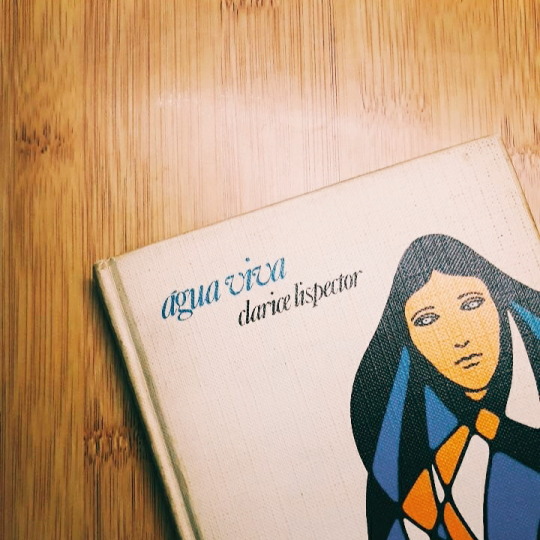
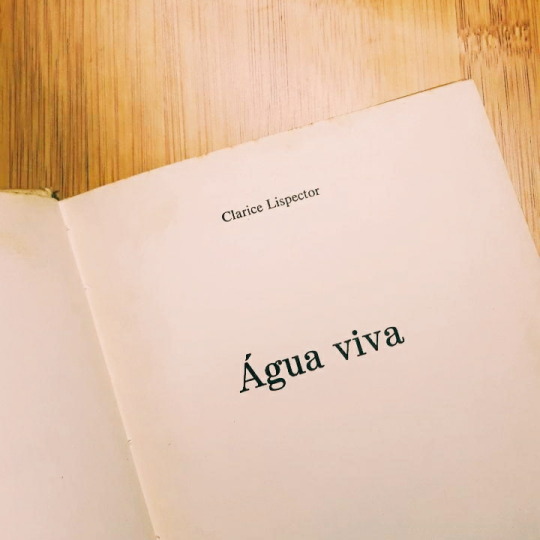
my first reading of Clarice Lispector and I just fell in love!
🦋 follow me on skoob:
#my posts#my post#clarice lispector#clarice#Lispector#poetry#poem#frases#citação#art#quotes#poets on tumblr#photography#books#book#livros#livro#Água viva#agua viva#skoob#dark#dark acadamia aesthetic#dark academia#dark aesthetic#light acadamia aesthetic#light academia#Clarice Lispector Agua viva#cottage academia
4 notes
·
View notes
Note
Best books you've read written by women? I hate reading stuff written by men lately...
Fiction(ish)
The Memory Police, Yoko Ogawa
A Ghost in the Throat, Doireann Ní Ghríofa
Paris, When It's Naked, Etel Adnan
Dept. of Speculation, Jenny Offill
My Sister, The Serial Killer, Oyinkan Braithwaite
Possession, A.S. Byatt
Cat's Eye, Margaret Atwood
The Tenderness of Wolves, Stef Penney
The Doll's Alphabet, Camilla Grudova
Her Body and Other Parties, Carmen Maria Machado
The People in the Room, Norah Lange
Água Viva, Clarice Lispector
Collected Stories, Clarice Lispector
The Empty Book, Josefina Vicens
Four Bare Legs in a Bed, Helen Simpson
The Thirteenth Tale, Diane Setterfield
A Tale for the Time Being, Ruth Ozeki
A Girl is a Half-Formed Thing, Eimear McBride
The God of Small Things, Arundhati Roy
Autobiography of Red, Anne Carson
White Teeth, Zadie Smith
Wuthering Heights, Emily Bronte
The Waves and Mrs Dalloway, Virginia Woolf
Non-Fiction:
Second-hand Time: The Last of the Soviets, Svetlana Alexievich
A Field Guide to Getting Lost, Rebecca Solnit
Bluets, Maggie Nelson
Living, Thinking, Looking, Siri Hustvedt
Feel Free: Essays, Zadie Smith
The Need for Roots, Simone Weil
Family Lexicon, Natalia Ginzburg
An Inventory of Losses, Judith Schalansky
Persepolis, Marjane Satrapi
Little Weirds, Jenny Slate
Braiding Sweetgrass, Robin Wall Kimmerer
Women Who Run with Wolves, Clarissa Pinkola Estés
Journal of a Solitude, May Sarton
Poetry:
The War Works Hard, Dunya Mikhail
Barefoot Souls and A Red Cherry on a White-Tiled Floor, Maram al-Masri
Tell Me and Wild Nights, Kim Addonizio
What the Living Do, Marie Howe
What We Carry, Dorianne Laux
Extracting the Stone of Madness, Alejandra Pizarnik
Poppies in Translation, Sujata Bhatt
The Neverfield: A Poem, Nathalie Handal
Women of the Fertile Crescent: An Anthology of Modern Poetry by Arab Women
View with a Grain of Sand, Wislawa Szymborska
The Black Unicorn, Audre Lorde
5K notes
·
View notes
Text

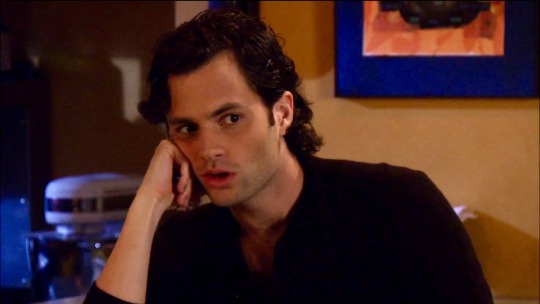


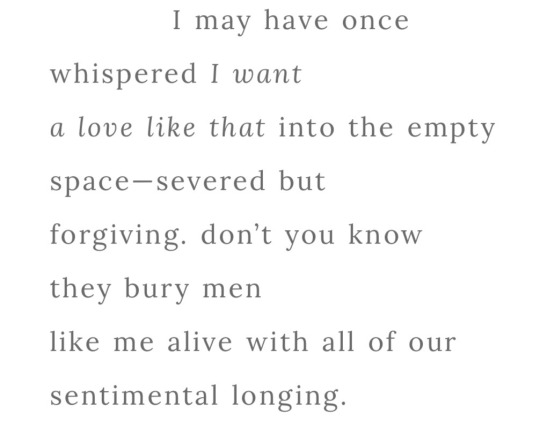



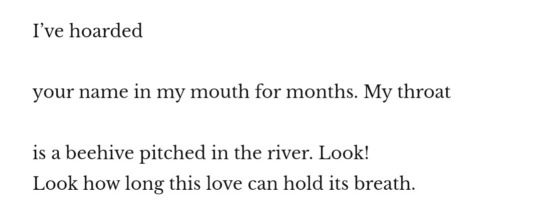
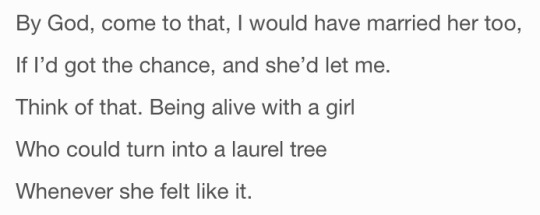
Dan + prose & poetry 3/3
Elizabeth McCracken, The Giant's House / 5.17 "The Princess Dowry" / Natalie Wee, "Lonely" / June Jordan, “These Poems” / Hanif Abdurraqib, “It’s Not Like Nikola Tesla Knew All of Those People Were Going to Die” / Richard Siken, "Crush" / Clarice Lispector, Água Viva / Julia Armfield, Our Wives Under the Sea / Sierra DeMulder, Your Love Finds Its Way Back / James Wright, “A Secret Gratitude”
#gossip girl#dan humphrey#web weaving#there's probs a correlation between how much writing by Mary Oliver - a lesbian poet#fits dair#queer coding babeyyyy#jessica does web weaving#dan texts#~professional yearner edition~#*
32 notes
·
View notes
Note
what are some quotes that are so visceral they feel like a gut punch to you?
“A man's heart is a wretched, wretched thing. It isn't like a mother's womb. It won't bleed. It won't stretch to make room for you.”
— Khaled Hosseini, A Thousand Splendid Suns
“At the trial of God, we will ask: why did you allow all this?
And the answer will be an echo: why did you allow all this?”
— Ilya Kaminsky, “A City Like a Guillotine Shivers on Its Way to the Neck”
“I want someone to tell me what to wear in the morning. I want someone to tell me what to wear every morning. I want someone to tell me what to eat, what to like, what to hate, what to rage about, what to listen to, what band to like, what to buy tickets for, what to joke about, what not to joke about. I want someone to tell me what to believe in, who to vote for, and who to love, and how to tell them. I just think I want someone to tell me how to live my life, Father, because so far I think I’ve been getting it wrong.”
— Phoebe Waller-Bridge, from Fleabag
“Les femmes de notre famille, nous sommes engluées dans la colère
J’ai été en colère contre ma mère
Tout comme tu es en colère contre moi
Et tout comme ma mère fut en colère contre sa mère
Il faut casser le fil.”
(The women in our family are all stuck in anger
I have been angry at my mother
As you are angry with me
And as my mother was angry at her mother
The thread must be broken.)
— Wajdi Mouawad, Incendies
“I know what I want: an ugly, clean woman with large breasts, who tells me: what’s all this about making things up? I won’t have any dramas, come here immediately!—And she gives me a warm bath, dresses me in a white linen nightdress, braids my hair and puts me to bed, very cross, saying: well what do you want? you run wild, eating at odd times, you could get sick, stop making up tragedies, you think you’re such a big deal, drink this mug of hot broth. She lifts my head up with her hand, covers me with a big sheet, brushes a few strands of hair off my forehead, already white and fresh, and tells me before I fall asleep warmly: you’ll see how in no time your face is going to fill out, forget those harebrained ideas and be a good girl. Someone who takes me in like a humble dog, who opens the door for me, brushes me, feeds me, loves me severely like a dog, that’s all I want, like a dog, a child.”
“I can feel myself holding a child, thought Joana. Sleep, my child, sleep, I tell you. The child is warm and I am sad. But it is the sadness of happiness, this appeasement and sufficiency that leave the face placid, faraway. And when my child touches me he doesn’t rob me of my thoughts as others do. But later, when I give him milk with these fragile, beautiful breasts, my child will grow from my force and crush me with his life. He will distance himself from me and I will be the useless old mother. I won’t feel cheated. But defeated merely and I will say: I don’t know a thing, I am able to give birth to a child and I don’t know a thing. God will receive my humility and will say: I was able to give birth to the universe and I don’t know a thing.”
— Clarice Lispector, Near to the Wild Heart
“I know that my phrases are crude, I write them with too much love, and that love makes up for their faults, but too much love is bad for the work.”
“I’m restless and harsh and despairing. Although I do have love inside me. I just don’t know how to use love. Sometimes it tears at my flesh.”
“But when winter comes I give and give and give. The excess of me starts to hurt and when I’m excessive I have to give of myself.”
— Clarice Lispector, Água Viva
“And that was what I felt when reading your book: that solitude.”
“Imagine the solitude of the person who wrote it.”
— Clarice Lispector, from an interview
“suppose the body did this to us,
made us afraid of love—”
— Louise Glück, “Crater Lake”
“When I put my hands on your body, on your flesh, I feel the history of that body. Not just the beginning of its forming in that distant lake, but all the way beyond its ending. I feel the warmth and texture and simultaneously I see the flesh unwrap from the layers of fat and disappear. I see the fat disappear from the muscle. I see the muscle disappearing from around the organs and detaching itself from the bones. I see the organs gradually fade into transparency, leaving a gleaming skeleton, gleaming like ivory that slowly resolves until it becomes dust. I am consumed in the sense of your weight, the way your flesh occupies momentary space, the fullness of it beneath my palms. I am amazed at how perfectly your body fits to the curves of my hands. If I could attach our blood vessels so we could become each other I would. If I could attach our blood vessels in order to anchor you to the earth, to this present time, I would. If I could open up your body and slip inside your skin and look out your eyes and forever have my lips fused with yours, I would. It makes me weep to feel the history of your flesh beneath my hands in a time of so much loss. It makes me weep to feel the movement of your flesh beneath my palms as you twist and turn over to one side to create a series of gestures, to reach up around my neck, to draw me nearer. All these memories will be lost in time like tears in the rain.”
— David Wojnarowicz, from The Half-Life
“A child weaned on poison considers harm a comfort.”
— Gillian Flynn, Sharp Objects
“and cain said, There’s an idea I can’t get out of my head, What’s that, said abraham, There must have been innocent people in sodom and in the other cities that were burned, If so, the lord would have kept the promise he made to make to save their lives, What about the children, said cain, surely the children were innocent, Oh my god, murmured abraham and his voice was like a groan, Yes, your god perhaps, but not theirs.”
— José Saramago, Cain
“I’d like to jet-ski / straight out of this life because right now I am / way attached to real things like for instance / people how they are
all so tender how they / love to just go walk around and someof them are / wearing pink now and it hurts me and they / bathe their dogs”
— Heather Christle, “This Is Not The Body I Asked For”
“The idea of deserving love. And then watching love being given to people who did nothing to deserve it.”
— Anaïs Nin, from her journal
“And he cries and cries, cries for everything he has been, for everything he might have been, for every old hurt, for every old happiness, cries for the shame and joy of finally getting to be a child, with all of a child’s whims and wants and insecurities, for the privilege of behaving badly and being forgiven, for the luxury of tendernesses, of fondnesses, of being served a meal and being made to eat it, for the ability, at last, at last, of believing a parent’s reassurances, of believing that to someone he is special despite all his mistakes and hatefulness, because of all his mistakes and hatefulness.”
— Hanya Yanagihara, A Little Life
“The veals are the children of cows, are calves. They are locked in boxes the size of themselves. A body-box, like a coffin, but alive, like a home. The children, the veal, they stand very still because tenderness depends of how little the world touches you. To stay tender, the weight of your life cannot lean on your bones.”
“Sometimes being offered tenderness feels like the very proof that you've been ruined.”
— Ocean Vuong, On Earth We’re Briefly Gorgeous
“I know we’ve just met but I feel like maybe / you’d feed me and tuck me into your big bed / and only touch me as you covered me with the comforter.”
— Kim Addonizio, “Party”
“The body has no thoughts.
The body soaks up love like a paper towel
and is still dry.”
— Kim Addonizio, “Body And Soul”
“I don’t know how God can bear / seeing everything at once: the falling bodies, the monuments and burnings, / the lovers pacing the floors of how many locked hearts.”
— Kim Addonizio, “The Numbers”
“I keep wishing for you, keep shutting up my eyes and looking toward the sky, asking with all my might for you, and yet you do not come. I thought of you, until the world grew rounder than it sometimes is, and I broke several dishes.”
— Emily Dickinson, from a letter to Minnie Holland
“The unknowness of my needs frightens me. I do not know how huge they are, or how high they are, I only know that they are not being met.”
— Jeanette Winterson, Oranges Are Not The Only Fruit
“I used to be a hopeless romantic. I am still a hopeless romantic. I used to believe that love was the highest value. I still believe that love is the highest value. I don’t expect to be happy. I don’t imagine that I will find love, whatever that means, or that if I do find it, it will make me happy. I don’t think of love as the answer or the solution. I think of love as a force of nature - as strong as the sun, as necessary, as impersonal, as gigantic, as impossible, as scorching as it is warming, as drought-making as it is life-giving. And when it burns out, the planet dies.”
“As for myself, I am splintered by great waves. I am coloured glass from a church window long since shattered. I find pieces of myself everywhere, and I cut myself handling them.”
— Jeanette Winterson, Lighthousekeeping
“I SAID I LOVED YOU AND I WANTED
GENOCIDE TO STOP
I SAID I LOVED YOU AND I WANTED AFFIRMATIVE
ACTION AND REACTION
I SAID I LOVED YOU AND I WANTED MUSIC
OUT THE WINDOWS
I SAID I LOVED YOU AND I WANTED
NOBODY THIRST AND NOBODY
NOBODY COLD
I SAID I LOVED YOU AND I WANTED I WANTED
JUSTICE UNDER MY NOSE”
— June Jordan, “Intifada Incantation: Poem 38 for b.b.L.”
“Maybe when I wake up in the middle of the night
I should go downstairs
dump the refrigerator contents on the floor
and stand there in the middle of the spilled milk
and the wasted butter spread beneath my dirty feet
writing poems
writing poems
maybe I just need to love myself myself and
anyway
I’m working on it”
— June Jordan, “Free Flight”
“It’s not that I gave away my keys. / The problem is nobody wants to steal me or my / house.”
— June Jordan, “Onesided Dialog”
“What reconciles me to my own death more than anything else is the image of a place: a place where your bones and mine are buried, thrown, uncovered, together. They are strewn there pell-mell. One of your ribs leans against my skull. A metacarpal of my left hand lies inside your pelvis. (Against my broken ribs your breast like a flower.) The hundred bones of our feet are scattered like gravel. It is strange that this image of our proximity, concerning as it does mere phosphate of calcium, should bestow a sense of peace. Yet it does. With you I can imagine a place where to be phosphate of calcium is enough.”
— John Berger, And Our Faces, My Heart, Brief As Photos
“I wept and wept. I had come to believe that if I really wanted something badly enough, the very act of my wanting it was an assurance that I would not get it.”
— Audre Lorde, from “Zami: A New Spelling of my Name”
“You kiss the back of my legs and I want to cry. / Only the sun has come this close, only the sun.”
— Shauna Barbosa, “GPS”
“It has to be perfect. It has to be irreproachable in every way. (...) To make up for it. To make up for the fact that it’s me.”
— Suzanne Rivecca
“I hope it’s love. I’m trying really hard to make it love. I said no more severity. I said it severely and slept through all my appointments. I clawed my way into the light but the light is just as scary. I’d rather quit. I’d rather be sad.”
— Richard Siken, Self-Portrait Against Red Wallpaper
“We have not touched the stars,
nor are we forgiven, which brings us back
to the hero's shoulders and the gentleness that comes,
not from the absence of violence, but despite
the abundance of it.”
— Richard Siken, “Snow And Dirty Rain”
“Love, for you, / is larger than the usual romantic love. It's like a religion. It's / terrifying. No one / will ever want to sleep with you.”
— Richard Siken, “Litany In Which Certain Things Are Crossed Out”
“The hardest thing still remains. It remains the hardest, to bear all the tenderness and only to gaze on.”
— Ilse Achinger, “Mirrorstory”
“i killed a plant once because i gave
it too much water. lord, i worry
that love is violence.”
— José Olivarez, “Getting Ready to Say I Love You to My Dad, It Rains”
“Mother says there are locked rooms inside all women; kitchen of lust,
bedroom of grief, bathroom of apathy.
Sometimes the men - they come with keys,
and sometimes, the men - they come with hammers.”
— Warsan Shire, “The House”
“I’ll take care of you. / It’s rotten work. / Not to me. Not if it’s you.”
— Euripides, Orestes, tr. Anne Carson
“We have this deep sadness between us and it spells so habitual I can’t tell it from love.”
— Anne Carson, The Beauty of the Husband
“There is no question I am someone starving. There is no question I am making this journey to find out what that appetite is.”
— Anne Carson, Plainwater: Essays
“I wish I could peel
all my sadness in one long strip off my skin
& toss it in a bucket. No one would have to carry it.
It would just sit there & be punished.
It would just sit there & think about everything it’s done.”
— Chen Chen, “Elegy For My Sadness”
“There is too much or not enough
room in my stomach
for everything we will do to each other.“
— Adriana Cloud, “Bento Body”
#i am SO SORRY I got excited and this got way too long#w#compilation#khaled hosseini#ilya kaminsky#chen chen#anne carson#richard siken#june jordan#jeanette winterson#clarice lispector#hanya yanagihara#ocean vuong#louise glück#audre lorde#john berger#josé saramago#heather christle#david wojnarowicz#gillian flynn#emily dickinson#kim addonizio
2K notes
·
View notes
Note
What ate your favourite dark quotes?
“In the shivery depths I saw a great heart bright as a ruby suspended in the vault by a huge web. It was beating and with each beat there fell to the ground a huge gout of blood. It was too large to be the heart of any living creature. It was larger even than the heart of a god. It is like the heart of agony”. — Henry Miller, from The Colossus of Maroussi.
“Longs flaps and shreds of flesh rip off the woman’s body and lift and blow away on the wind, leaving an exposed column of nerve and blood and muscle calling mutely through lipless mouth.” — Anne Carson, from The Glass Essay.
“All claws and teeth, she strikes, she gorges; but nothing can console her for the ghastliness of her condition, nothing”. — Angela Carter, from The Bloody Chamber and Other Stories; The Lady of the House of Love.
“It wants our bodies, the landscape does, and everyone runs the risk of being swallowed up. Can we love nature for what it really is: predatory? We do not walk through a passive landscape”. — Richard Siken, from War of The Foxes; Landscape with Fruit Rot and Millipede.
“With an old red hook in her mouth, the mouth that kept bleeding, into the terrible fields of her soul…” — Anne Sexton, from Live or Die; Consorting with Angels.
“Red, red, mother, you are blood red” .— Anne Sexton, from The Book of Folly; The Death of Fathers.
“I have (…) a seeing that floats within my bones”. — Alice Notley, from Mysteries of Small Houses; 47th Birthday.
“This is the place you would rather not know about, this is the place that will inhabit you, this is the place you cannot imagine, this is the place that will finally defeat you”. – Margaret Atwood, from Selected Poems II: Notes Towards a Poem that Can Never Be Written.
“Moon snakes, tongues of the dark speak like bones unlocking, leaves falling of a future you won’t believe in”. — Margaret Atwood, from You Are Happy; The Circe/Mud Poems.
“I know a she who is terrified by butterflies as if they were supernatural. And the divine part of butterflies is terrifying indeed. And I know a he who shivers in horror before flowers – he thinks that flowers are hauntingly delicate like a sigh of nobody in the dark”.— Clarice Lispector, from Água Viva.
“Please,” she said, “you’re so beautiful. You may eat me if you like. I’d sooner be eaten by you than fed by anyone else.” — C.S. Lewis, The Horse and His Boy.
“Revel in the open country of my wound, break apart its reeds and delicate rivulets”. — Federico García Lorca, [trans. Paul Archer] from Sonnets of Dark Love; Sonnet of the garland of roses.
“Something in me vibrates to a dusky, dreamy smell – a smell of dying moons and shadows”. — Zelda Fitzgerald, from a letter to Francis Scott Fitzgerald, circa April 15th 1919.
“I am terrified by this dark thing that sleeps in me; all day I feel its soft, feathery turnings, its malignity”.— Sylvia Plath, from The Collected Poems; Elm.
“The great roots of night grow suddenly from your soul, and the things that hide in you come out again”. — Pablo Neruda, from The Light Wraps You.
“The heart threading a tunnel, a dark, dark tunnel: like a wreck we die to the very core, as if drowning at the heart or collapsing inwards from skin to soul”. — Pablo Neruda, from Death Alone.
“Your life is a painting in a dark museum and sometimes you examine it closely”. — Guillaume Apollinaire, from Zone.
“To what extent we need death—that’s something that can’t be spoken of. How we call on it with our terrified prayers, how we beseech it not to come, with what horror we adore it—no, that can’t be spoken of. We aren’t happy unless it’s lying across our path”.— Hélène Cixous, from Stigmata; Hiss of the Axe.
“On his way the gallow birds asked for food so he killed his horse to give them lunch. They sucked the blood up like whiskey and covered him with promises”. — Anne Sexton, from Transformations; The White Snake.
“All peoples are driven to the point of eating their gods after a time: it’s the old greed for a plateful of outer space, that craving for darkness, the lust to feel what it does to you when your teeth meet in divinity, in the flesh, when you swallow it down and you can see with its own cold eyes, look out through murder”.— Margaret Atwood, from Selected Poems II; Eating Snake.
“Now you are at the place of annihilation. Now you are at the place of annihilation. She turns her head away from the blue beams of his eyes; she knows no other consummation than the only one she can offer him. She has not eaten for three days. It is dinner-time. It is bedtime.” — Angela Carter, from The Bloody Chamber and Other Stories; The Lady of the House of Love.
1K notes
·
View notes
Note
my favourite books from this year were: Circe by Madeline miller, sharp objects by Gillian Flynn, sister outsider by Audre Lorde, água viva by Clarice Lispector and the selected poems of Rosario Castellano!
okay i already have sharp objects on my list so i’ll def check it out soon!! and i loveee poetry, thank you! sending you hugs ❤️
2 notes
·
View notes
Text
primeira vista // poem in portuguese
saudades de você
que viva, morreu
que sendo, não é
pois não fala comigo.
saudades de tudo que você representa
dos cachos, sorrisos
clarice lispector é só sua
e lê-la é ver sua alma nua
seu coração à mostra
é mentir pra mim mesma e fingir
que ainda te conheço.
mas você se afasta,
eu me encasulo
e tenho medo de, ao te perseguir,
me queime.
não se ponha ainda.
espere eu criar coragem,
minha musa das águas,
e antes que a gente entre na faculdade
e se despeça eternamente
que eu crie coragem de te falar tudo o que sempre quis
e te beijar na boca,
como você merece.
#poems#poetry#sapphic poetry#poesia lésbica#lesbica#bi#gay#sapatao#lgbt#poesia lgbt#lgbt poetry#poesia brasileira#poesia latinoamericana
3 notes
·
View notes
Photo
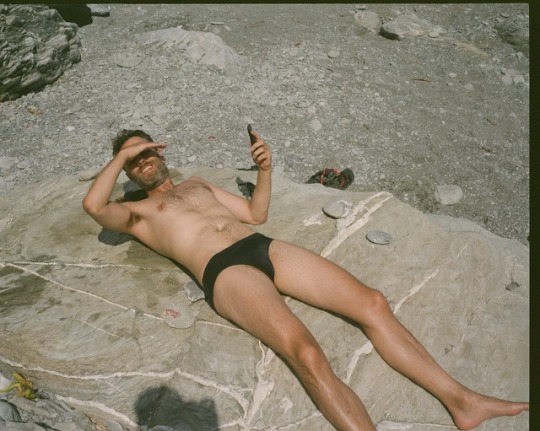
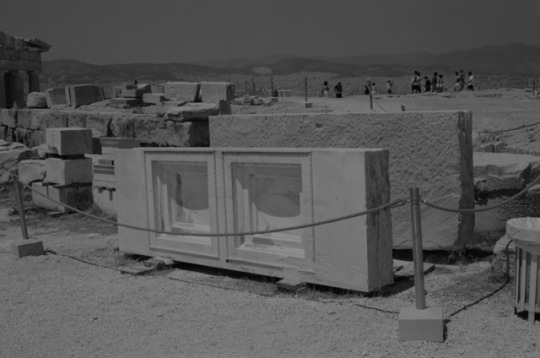
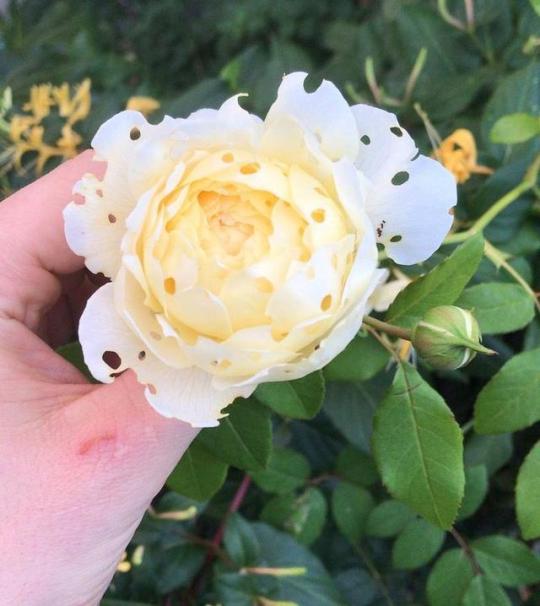
The Wild Ones: Martin Sekera
18 Μαρτίου - 12 Απριλίου 2019
IG @kgoldtemporarygallery
Το πρότζεκτ “The Wild Ones” της K-Gold Temporary Gallery παρουσιάζει το έργο έξι διεθνών φωτογράφων μέσα από τον λογαριασμό της πλατφόρμας στο Instagram (@kgoldtemporarygallery). Η online έκθεση εξετάζει τις αναζητήσεις, τις τάσεις και τους πειραματισμούς στη σύγχρονη φωτογραφία, με σημείο αφετηρίας τις προκλήσεις της εποχής της εικόνας.
Στο τρίτο μέρος του πρότζεκτ, παρουσιάζεται μια επιλογή φωτογραφιών του Martin Sekera, του οποίου η έρευνα επικεντρώνεται στην αρρενωπότητα, την επιθυμία και το σωματικό. Η αυτοβιογραφική του προσέγγιση στην καταγραφή του περιβάλλοντος του, συνδυάζει συχνά φανταστικά στοιχεία και αναφορές στην αρχαιότητα.
Ο Martin Sekera (Τσεχία, 1990) ζει και εργάζεται στο Λονδίνο. Σπούδασε Καλές Τέχνες στο Central Saint Martins και έκανε μεταπτυχιακές σπουδές στο Royal College of Art. Έχει εκθέσει στο Block 336, το Brighton Photo Fringe, το BALTIC, το The Horse Hospital και τη Lychee One Gallery. Ο Sekera συμμετείχε στο πρόγραμμα φιλοξενίας καλλιτεχνών στο SVA (Νέα Υόρκη) και Cité Internationale des Arts (Παρίσι). Το έργο του παρουσιάστηκε σε διάφορες εκδόσεις, όπως το British Journal of Photography.
Συνέντευξη του Martin Sekera στη Βίκυ Τσίρου
ΒT: Γεννήθηκες στο Πρέροβ της Τσεχίας και σπούδασες στο Λονδίνο, όπου μάλιστα ζεις μέχρι σήμερα. Είναι μια πολύ ζωντανή και ετερόκλιτη πόλη, γεμάτη αντιθέσεις και ερεθίσματα για ανερχόμενους καλλιτέχνες. Τι αντίκτυπο έχει σε σένα;
MS: Το Λονδίνο με έχει διδάξει καινούρια πράγματα. Έχει διαμορφώσει το πως νιώθω, γεύομαι και φαίνομαι κάθε μέρα εδώ και εννέα χρόνια. Χάρη στο Λονδίνο έχω μάθει να διακρίνω και τις 126 αποχρώσεις του γκρι.
ΒT Βρίσκω ότι από το έργο σου αναδύεται ένας υποβόσκων ερωτισμός, ένας λεπτός αισθησιασμός. Τι είναι αυτό που σε σαγηνεύει στα ανδρικά σώματα;
MS: Τείνω να εκφράζω την σεξουαλικότητά μου μέσα από τη δουλειά μου, εξ ου και το ενδιαφέρον μου για το αρσενικό στοιχείο. Bρίσκω μαγευτική κάθε σπιθαμή του ανθρώπινου σώματος· όπως και την εξαθλίωση του. Τελευταία, έχω εμμονή με τον ομφαλό. Πού άραγε οδηγεί;
ΒT: Οι φωτογραφίες σου υμνούν την αγάπη και την επιθυμία. Κάποιος θα περίμενε φωτεινά και ζωηρά χρώματα, ωστόσο χρησιμοποιείς κυρίως σκοτεινούς τόνους. Πώς προκύπτει αυτό;
MS: Είμαι ένας μελαγχολικός άνθρωπος ή όπως θα έλεγε η Κλαρίσε Λισπέκτορ στο Água Viva “Είμαι η μελαγχολία. Και αναπαύομαι στη μελαγχολία.” Δεν έχουν όλοι οι έρωτες καλό τέλος.
ΒT: Ποιά είναι η σχέση σου με την αρχαιότητα; Χρησιμοποιείς τη φωτογραφική κάμερα για να εξασκήσεις ένα είδος σύγχρονης αρχαιολογίας;
MS: Οι Αρχαίοι Έλληνες ήταν απλά εξαιρετικοί στην απεικόνιση της ομορφιάς όλων των πραγμάτων. Προφανώς, το πιο ελκυστικό κομμάτι για μένα είναι ο τρόπος με τον οποίο απέδιδαν το αρσενικό σώμα. Νιώθω απέραντη χαρά όταν περιδιαβαίνω τους διαδρόμους των μουσείων.
ΒT: Γνωρίζω ότι αγαπάς τα βιβλία και συχνά ενσωματώνεις τα αναγνώσματα αυτά στα έργα σου. Από που παίρνεις έμπνευση;
MS: Θεωρώ πως όλοι πρέπει να διαβάσουν ξανά το Συμπόσιο του Πλάτωνα, όπου αναφέρεται επίσης ο ομφαλός με έναν πολύ σαγηνευτικό τρόπο. Οι Παραλίες της Ανιές Βαρντά είναι τόσο μαγευτικές όσο και οι ελληνικές. Η ικανοποιητική επιφάνεια στα έργα της Ρέιτσελ Γουάιτριντ. Τα τρομακτικά ημερολόγια της Εύα Χέσε. Τα αιδοία της Χάννα Γουίλκε που μοιάζουν με ομφαλούς. Η γλύκα του φραμπουάζ στα ποιήματα του Πίτερ Ορλόφσκι.
ΒT: Το 2017 κέρδισες το Bloomberg New Contemporaries, ένα σημαντικό Βρετανικό βραβείο για νέους καλλιτέχνες. Άλλαξε αυτό με κάποιον τρόπο την καριέρα σου; Δημιούργησε νέες ευκαιρίες;
MS: Δεν θα έλεγα πως άλλαξε ιδιαίτερα την καριέρα μου, αλλά ήταν κάτι που ονειρευόμουν από όταν ξεκίνησα τις σπουδές μου στο Central Saint Martins. Το Βαλτικό Κέντρο Σύγχρονης Τέχνης στο Νιούκαστλ είναι ένας πολύ ξεχωριστός χώρος, γι’ αυτό και ήταν μεγάλη τιμή να παρουσιάσω τη δουλειά μου εκεί.
ΒT: Σε φοβίζει να μην έχεις έμπνευση; Ποιός είναι ο μεγαλύτερος φόβος σου στη δουλειά;
MS: Οι απλές καθημερινές απολαύσεις με βοηθούν να ξεπεράσω τους φόβους μου. Σκεφτείτε τα ώριμα φρούτα και τους χυμούς τους.
ΒT: Είσαι ερωτευμένος?
MS: Είμαι συχνά ερωτευμένος, κάποιες φορές μόνο για μία εβδομάδα, με κάτι άλλο ή με κάποιον άλλον. Είναι αυτό που με κρατά εμπνευσμένο και διατηρεί την περιέργειά μου.
ΒT: Έχεις επισκεφθεί την Ελλάδα αρκετές φορές και από τις αναρτήσεις σου στο Instagram φαίνεται πως σου αρέσουν πολύ τα νησιά μας. Τι είναι η Ελλάδα για σένα;
MS: Μπλε, μπλε, μπλε, όλες οι πιθανές αποχρώσεις του μπλε, οι ατελείωτες ελληνικές θάλασσες το καλοκαίρι, οι ζεστές παραλίες και οι όμορφοι άνθρωποι· το αλάτι στο δέρμα και τα χείλη μου.
Τhe Wild Ones: Martin Sekera
March 18 - April 12, 2019
IG @kgoldtemporarygallery
The project “The Wild Ones” presents the work of six international photographers through the Instagram account of the platform (@kgoldtemporarygallery). The online exhibition examines the quests, trends and experiments in contemporary photography, starting from diverse challenges brought by the age of the image.
In the third part of the project, we present a selection of photographs by Martin Sekera, whose research focuses on masculinity, desire and the corporeal. His autobiographical approach in capturing his surroundings is often blended with fictional elements and archaeological references.
Martin Sekera (Czech Republic, 1990) lives and works in London. He studied Fine Arts at Central Saint Martins and holds a MA degree from the Royal College of Art. He has exhibited at Block 336, Brighton Photo Fringe, BALTIC, The Horse Hospital and Lychee One Gallery. Sekera was a resident artist at SVA (New York City) and Cité Internationale des Arts (Paris). His work was featured in various publications including the British Journal of Photography.
Martin Sekera interviewed by Vicky Tsirou
VT: You were born in Prerov, Czech Republic and you studied in London, where you still live in. It is a lively and eclectic city, full of contradictions and stimuli for emerging artists. What impact does it have on you?
MS: London has been teaching me new things and what they feel, taste and look like every single day for the past nine years. Thanks to London I have learnt to differentiate all the 126 variations of the colour grey.
VT: I find that a smoldering eroticism, a gentle sexuality emerges from your work. What do you find fascinating about male bodies?
MS: I tend to express my sexuality through my work hence my interest in the male. I find every bit of the human body to be mesmerising; also its abjection. My current obsession lies in the navel. Where does it lead to?
VT: Your photographs hymn love and desire. One would expect bright and vivid colors, however you mostly use dark shades. How come?
MS: I am a melancholic person or as Clarice Lispector would put in Água Viva “I am melancholy. And I relax in the melancholy.” Not all loves end well.
VT: How about your relationship with antiquity? Does your camera facilitate you to practice a sort of contemporary archeology?
MS: The Ancient Greeks were simply exceptional in depicting beauty - of everything. Obviously, the most luring part for me has been their depiction of the male body. Plus, I find an enormous joy in roaming museums' corridors.
VT: I know that you love books and you often embody these readings in your projects. Where do you draw your inspiration from?
MS: I think everyone should re-read Plato's Symposium, where he also mentions the navel very seductively. The Beaches of Agnès Varda are as enchanting as the Greek ones. The satisfying surface in Rachel Whiteread's work. The daunting diaries of Eva Hesse. The navel like vaginas of Hannah Wilke. The rassberries sweetness in the poems of Peter Orlovsky.
VT: You won Bloomberg New Contemporaries 2017, a major UK award for young artists. Did this change your career? Did it create new opportunities?
MS: I would not say it particularly changed my carrier, but I dreamt about it since the beginning of my BA at Central Saint Martins. The BALTIC Centre for Contemporary Art in Newcastle is such a special venue, so it was an honour to exhibit my work there.
VT: Are you afraid of not having inspiration? Which is your biggest fear in your work?
MS: Simple daily pleasures help me overcome my fears. My surroundings pleasure me. Think of ripe fruit and its juice.
VT: Are you in love?
MS: I am often in love, sometimes just for a week, with something or someone else. That's what keeps me curious and inspired.
VT: You’ve visited Greece a couple of times and I can tell from your Instagram posts that you like our islands. What is Greece for you?
MS: Blue, blue, blue, all possible hues of blue, endless Greek summer seas; its warm beaches and beautiful people; salt on my skin and in my mouth.
2 notes
·
View notes
Text



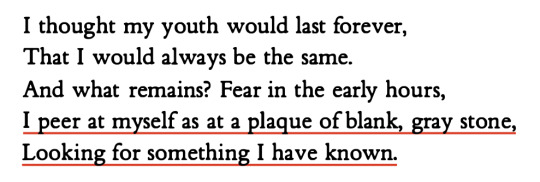



1. Czeslaw Melowisz from New and Collected Poems: 1931-2001
2. Czeslaw Melowisz from New and Collected Poems: 1931-2001
3. Tracy K Smith from "Eternity", Wade In The Water
4. Czeslaw Melowisz from New and Collected Posms: 1931-2001
5. Emily Dickinson, the Complete Poems of Emily Dickinson
6. T. S. Eliot, The Love Song of J. Alfred Prufrock
7. Clarice Lispector, tr. by Elizabeth Lowe, Água Viva
0 notes